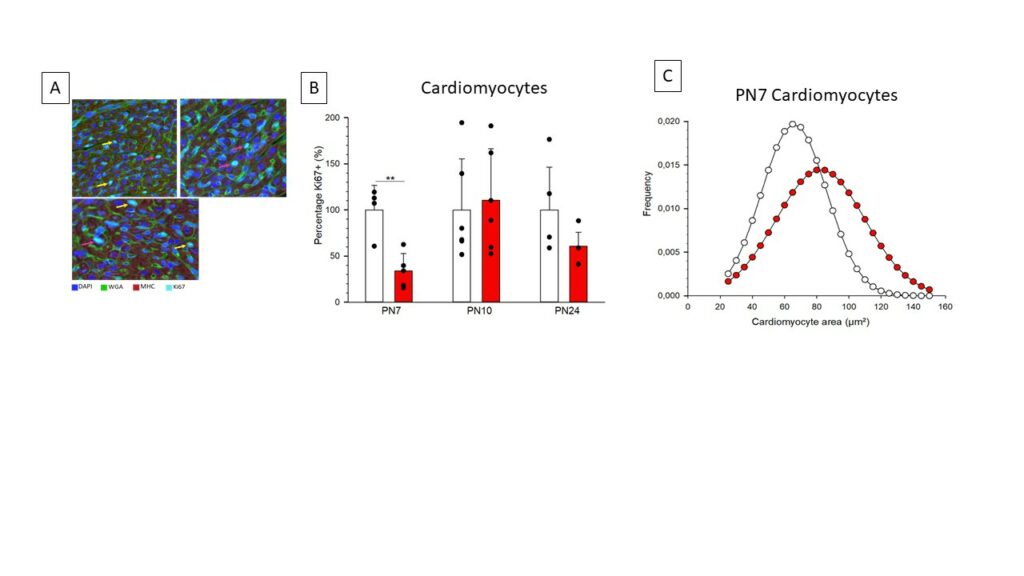According to the Developmental Origins of Health and Disease (DOHaD) concept, an individual’s exposure to environmental disturbancies, particularly nutritional ones, during critical developmental periods can influence the subsequent development of pathologies.
In mouse pups exposed to postnatal overfeeding (PNOF), the PEC2 experimental laboratory has observed an earlier transition from proliferation to hypertrophy of cardiomyocytes, reducing their regenerative capacity. We hypothesize that these early modifications could increase the risks of cardiac dysfunction in adulthood.
Indeed, after birth, the change in metabolism of cardiomyocytes influences their ability to divide, and circulating metabolic factors induced by PNOF could reduce cardiomyocyte proliferation. The objective of our team is to study the impact of PNOF on cardiac energy pathways, particularly those involving glucose and lipids, and their role in reducing mitosis or inducing cell death of cardiomyocytes.
